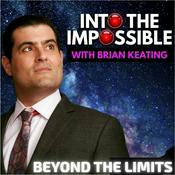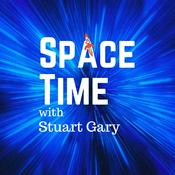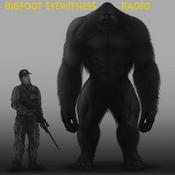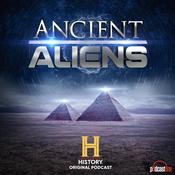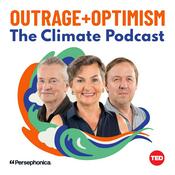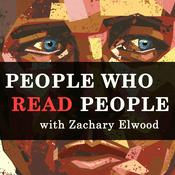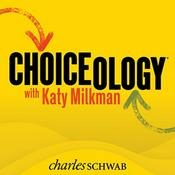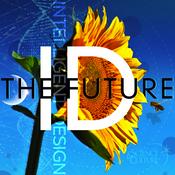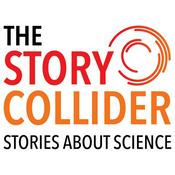24 episodes
- Happy New Year, listeners! This month's episode deals with trust. When we think of trust, we tend to place this issue within the realm of psychology. It’s often seen as a complicated construct in our relationships that determines whether we believe those we know will act reliably, honestly, and supportively. But in sociology, we might think of trust in terms of social networks and ties. We might even think about trust in institutions. Can you trust an institution?
Dana Williams, a sociology professor at California State University, Chico and author of Who Do We Trust?, joins me to unpack issues around trust and how we can practice radical trust in 2026.
Show Notes
Williams, Dana. Who Do We Trust? - Pluto Press. (2025, December 23). Pluto Press. https://www.plutobooks.com/product/who-do-we-trust/
Cook, K. S., & Santana, J. J. (2020). Trust: Perspectives in Sociology. Routledge EBooks, 189–204. https://doi.org/10.4324/9781315542294-15
Eileen, A., & Rosemary, B. (2020, September 9). Working Paper: Financialization in Health Care: The Transformation of US Hospital Systems. Center for Economic and Policy Research. https://cepr.net/publications/working-paper-financialization-in-health-care-the-transformation-of-us-hospital-systems/
Media clips
https://www.youtube.com/watch?v=VX3C2A9bck0
https://www.youtube.com/watch?v=FegvO38Qa44
https://www.tiktok.com/@cbsnews/video/7568308533385596174 - The season finale of Sociology Ruins Everything explores the intersection of robotics and reproductive labor, highlighting the potential risks of deploying technology without considering societal implications. This episode, likely the geekiest to date, examines these themes through the lens of popular culture. Colette Searls, author of A Galaxy of Things: The Power of Puppets and Masks in Star Wars and Beyond, joins the discussion.
Show Notes:
Searls, C. (2023). A galaxy of things: The power of puppets and masks in star wars and beyond. Routledge. https://www.routledge.com/A-Galaxy-of-Things-The-Power-of-Puppets-and-Masks-in-Star-Wars-and-Beyond/Searls/p/book/9780367684419
Vincent, J., Taipale, S., Sapio, B., Fortunati, L., & Lugano, G. (Eds.). (2015). Social Robots from a Human Perspective (2015th ed.). Springer International Publishing. https://link.springer.com/book/10.1007/978-3-319-15672-9 - You pay your taxes, you vote, and you follow the laws. Does that make you a good citizen? If you said yes, according to a 2019 Pew Center Research survey, most Americans agree with you. However, do these things make you civically engaged? This episode explores what it means to be a civically engaged social scientist and how we now need engaged researchers more than ever.
Show Notes
Philip Cohen on social media
https://bsky.app/profile/philipncohen.com
https://x.com/familyunequal
Cohen, Philip (2025). Citizen Scholar: Public Engagement for Social Scientists.
https://cup.columbia.edu/book/citizen-scholar/9780231204194/
Lynd, Robert (2016). Knowledge for what: The Place of Social Science in American Culture.
https://press.princeton.edu/books/hardcover/9780691648088/knowledge-for-what?srsltid=AfmBOooZ52chxPtWIMMbwPgf9X8f6qHRJd5S_3CajC0cA-svipnDrOEq
Putnam, Robert (2000). Bowling Alone: The Collapse and Revival of American Community
http://bowlingalone.com/
SocArXiv
https://osf.io/preprints/socarxiv - What can a sociology podcast say about fire? This episode delves into the social and cultural dimensions of fire and the institutions that have changed our relationship with it. While it touches on climate change, this episode is more about the power dynamics, social inequalities, and cultural values that influence decision-making and resource allocation in fire and forest management. Today's wildfires are a tragedy in the making, going back over 100 years. Patrick Wright, the director of the California Wildfire and Forest Resilience Taskforce, joins me as we talk about the vital next steps in protecting communities.
Show notes
California Wildfire and Forest Resilience Taskforce
https://wildfiretaskforce.org/
Treatment Dashboard
https://wildfiretaskforce.org/treatment-dashboard/
Sedlar, Matthew. Living with Disaster: Risk, Housing Instability, and Post-Disaster Migration. N.p., 2022. Print.
https://mars.gmu.edu/items/bd414407-1351-4220-8bc2-a9db39dbe89a - This month, I want to tell you a story about Concord Park, a suburb of Philadelphia. Concord Park was intentionally designed to combat the systemic forces that fostered segregation and inequality in postwar American cities. So when more and more people were being separated, Concord Park brought people together. But geography, or putting people in homes next to each other, isn’t enough. Communities are built on interaction, shared interests, and experiences. In the case of Concord Park, it was through the Wonderland Puppet Theater. That’s right. This month, we’re talking about puppets. But also housing, inequality, and community. This is a sociology podcast, after all. Paulette Richards joins the podcast as we talk about how art can bring community together.
Show Notes
Richards, P. (2024). Object performance in the Black Atlantic: The United States. Routledge. https://www.routledge.com/Object-Performance-in-the-Black-Atlantic-The-United-States/Richards/p/book/9781032054865
Patterson, Orlando. Slavery and Social Death: A Comparative Study. Cambridge: Harvard UP, 1982. https://www.hup.harvard.edu/books/9780674986909
Piggot, W. Benjamin and W. Benjamin Pigott. “The ‘Problem’ of the Black Middle Class: Morris Milgram's Concord Park and Residential Integration in Philadelphia's Postwar Suburbs” The Pennsylvania Magazine of History and Biography, Apr., 2008, Vol. 132, No. 2 (Apr., 2008), pp. 173-190 https://www.jstor.org/stable/20093996
More Science podcasts
Trending Science podcasts
About Sociology Ruins Everything
The sociological imagination is great, but really, it ruins all your favorite things. This podcast, hosted by Matt Sedlar, takes a topic each month and explores it from a sociological perspective.
Podcast websiteListen to Sociology Ruins Everything, Ologies with Alie Ward and many other podcasts from around the world with the radio.net app
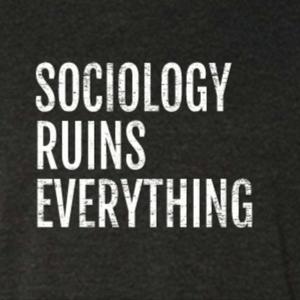
Get the free radio.net app
- Stations and podcasts to bookmark
- Stream via Wi-Fi or Bluetooth
- Supports Carplay & Android Auto
- Many other app features
Get the free radio.net app
- Stations and podcasts to bookmark
- Stream via Wi-Fi or Bluetooth
- Supports Carplay & Android Auto
- Many other app features


Sociology Ruins Everything
Scan code,
download the app,
start listening.
download the app,
start listening.













